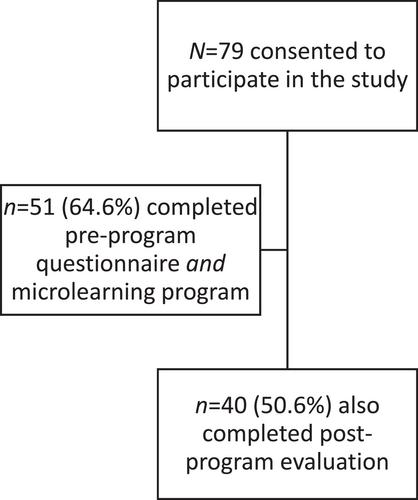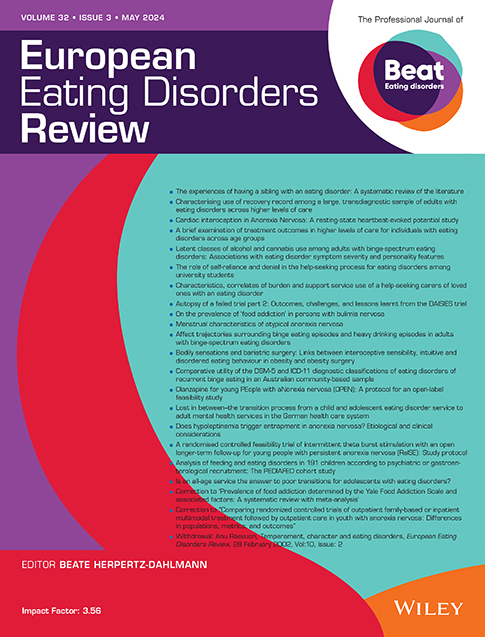Over two-thirds of people present to their primary care physician (or general practitioner; GP) as a first point of contact for mental health concerns. However, eating disorders (EDs) are often not identified in a primary care setting. A significant barrier to early detection and intervention is lack of primary care physician training in EDs; compounded by the significant time commitments required for training by already time-poor general practitioners. The aim of the current study was to pilot and evaluate a microlearning programme that can be delivered to general practitioners with high workloads to help support patients with, or at risk of, developing an ED.
Fifty-one Australian general practitioners aged between 25-to-60 years old were recruited. Participants completed a baseline questionnaire to ascertain their experience working in general practice and with EDs. Participants then completed an online programme consisting of a series of 10 case studies (vignettes) delivered over a 6–10 week period related to various facets of ED care. Following conclusion of the programme, participants were asked to complete an evaluative questionnaire related to the content of the programme; perceived knowledge, confidence, willingness-to-treat, skill change; and their overall experience of microlearning.
All 51 GPs completed the programme and reached completion criteria for all vignettes, 40 of whom completed the programme evaluation. Participants indicated improved skill, confidence, willingness-to-treat, and knowledge following the completion of the pilot programme. Almost all (97.5%; n = 39) found microlearning to be an effective method to learn about EDs; with 87.5% (n = 35) of participants reporting they felt able to apply what was learnt in practice. Qualitative feedback highlighted the benefit of microlearning's flexibility to train general practitioners to work with complex health presentations, specifically EDs.
Findings from the current study lend support to the use of microlearning in medical health professional training; notably around complex mental health concerns. Microlearning appears to be an acceptable and effective training method for GPs to learn about EDs. Given the significant time demands on GPs and the resulting challenges in designing appropriate training for this part of the workforce, this training method has promise. The pre-existing interest in EDs in the current study sample was high; future studies should sample more broadly to ensure that microlearning can be applied at scale.



